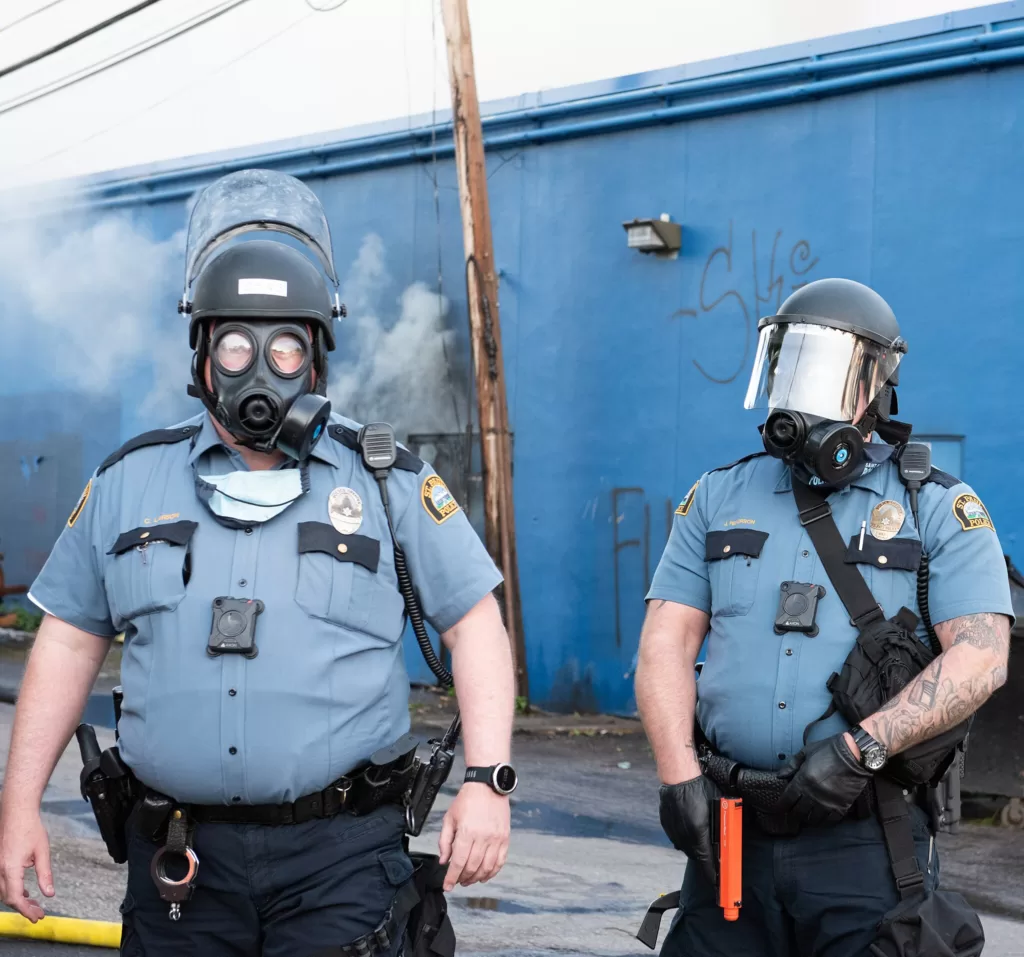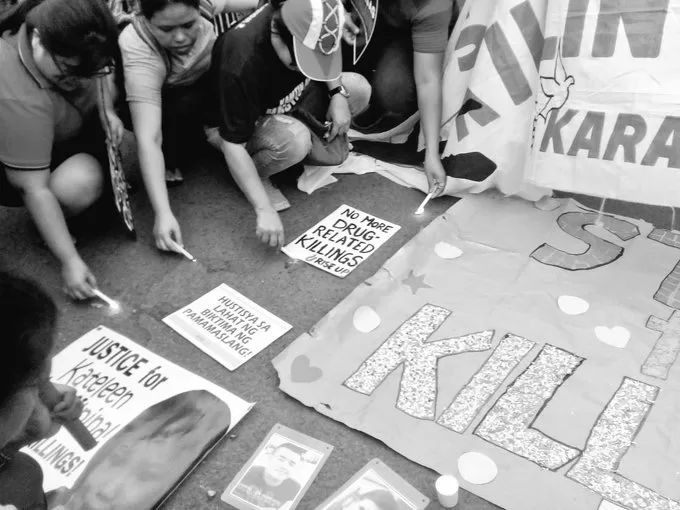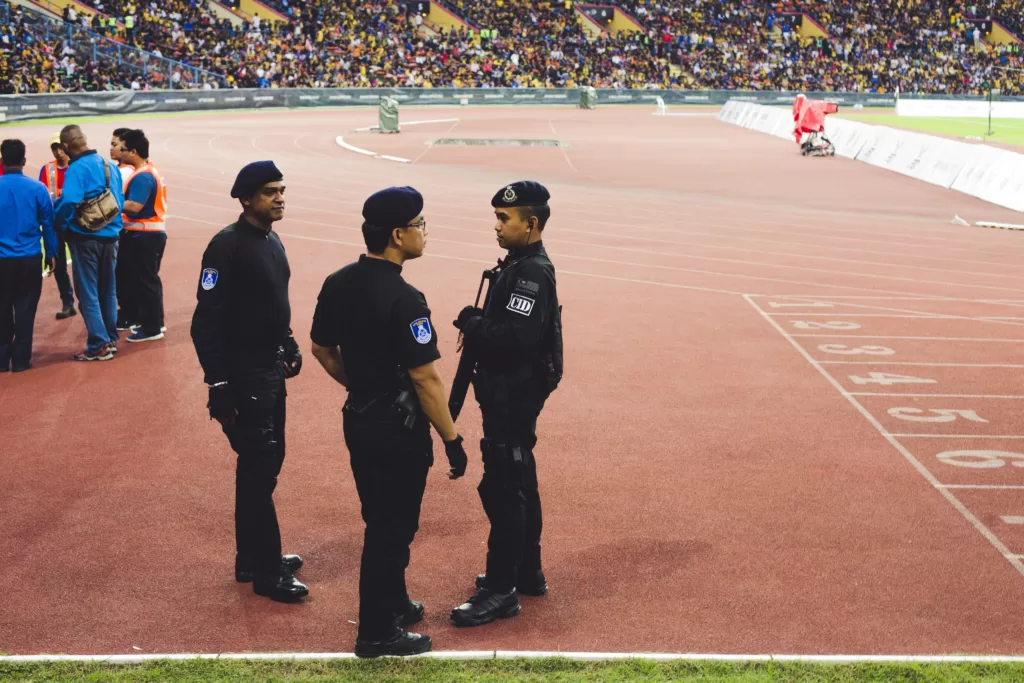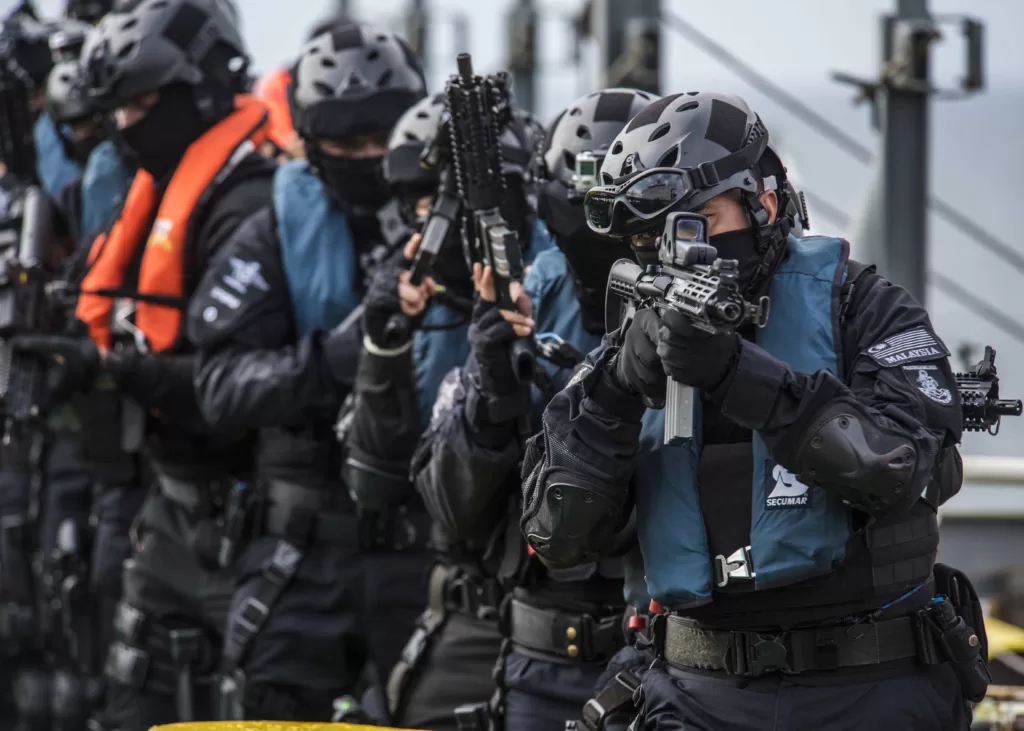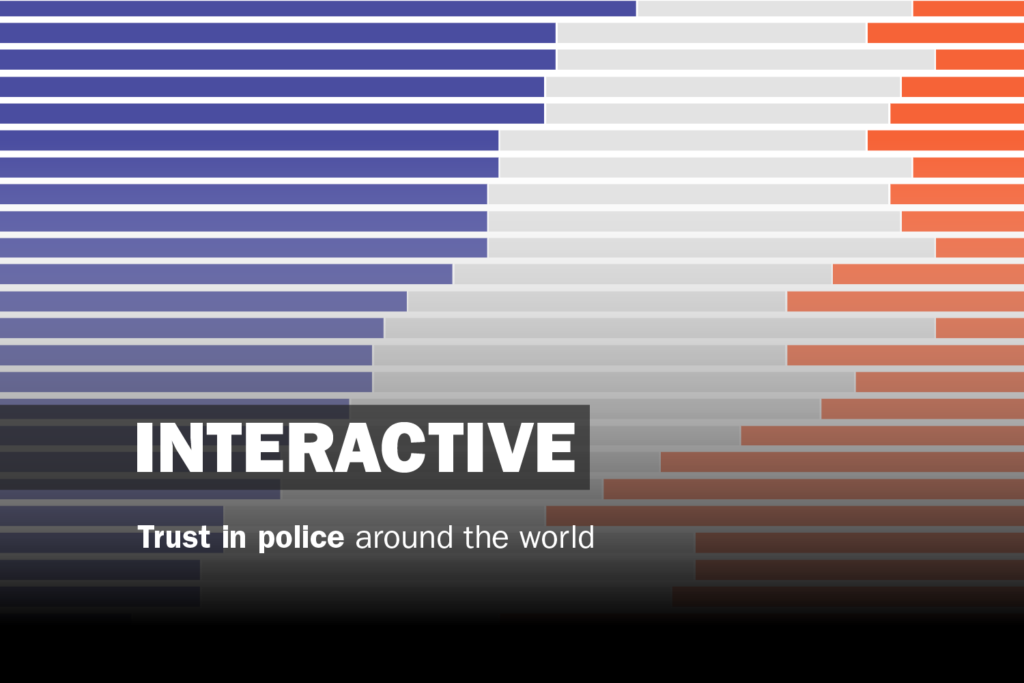After separating from the military, Indonesia’s police still struggle to gain public trust. Have they missed their best chance of winning over the people?
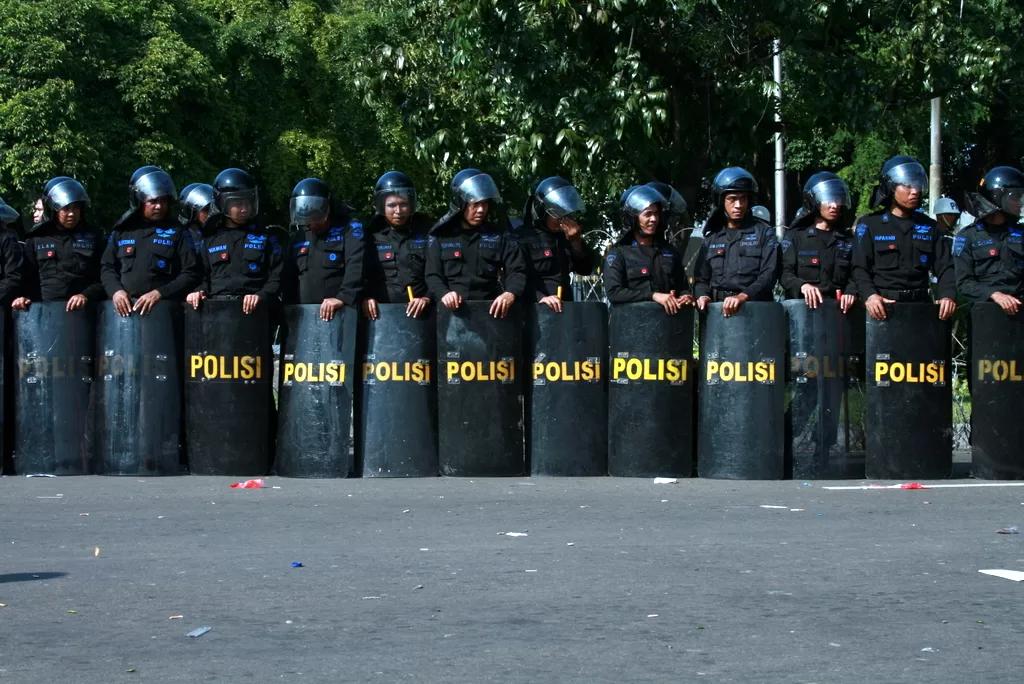 Gaining trust is important for Indonesians towards their police : “Police line” by Prazz is available at https://bit.ly/3OWm6DK CC BY-NC 2.0
Gaining trust is important for Indonesians towards their police : “Police line” by Prazz is available at https://bit.ly/3OWm6DK CC BY-NC 2.0
After separating from the military, Indonesia’s police still struggle to gain public trust. Have they missed their best chance of winning over the people?
It’s been a bad couple of years for Indonesia’s police, or Polri, beset by a series of high-profile scandals.
A two-star general shot dead his adjutant. Police firing tear gas at football fans in Kanjuruhan Stadium set off a deadly stampede which left 135 dead. A chief inspector was jailed for selling drugs seized from traffickers.
Indonesian and international media covered these and other stories for weeks, severely embarrassing the police. Twenty-five years on from the end of the Suharto regime and Indonesia looks to have missed its best chance of reforming the organisation.
Trust in Polri has reduced significantly. The police not only lost their confidence but also their pride and public support. Polri successfully improved their image based on the graphics below but reducing crime (instrumental justice) is somehow inevitably put aside.
Lay-down policing, where police reduced their use of decisive force, is taking place in most areas in Indonesia, especially after the Kanjuruhan Stadium disaster.
Recent attempts at improving the effectiveness of the police have focused on changes to empower officers to deter, investigate and solve crimes. This, however, assumes the police have legitimacy, relying on the public’s preference for results over procedure.
Research into the public’s perception of the Indonesian National Police revealed people place more importance on how police do their job — treating people fairly and with respect, unbiased decision-making based on facts, and transparency in their procedures — over how many crimes they solve.
Traditionally, the prevailing belief was that individuals obeyed the law solely to avoid punishment, leading to punitive approaches that sought to impose harsher penalties to deter potential offenders.
However, studies have shown deterrence-based models don’t reduce crime rates. People are more likely to comply with the law when they believe in its righteousness and perceive authorities as just in their enforcement.
When police adhere to principles of procedural justice during interactions with the public, positive perceptions of the police, confidence in their abilities, and cooperation are more likely.
Individuals are more inclined to view the police as legitimate figures of authority and are more willing to abide by the law. Given that encounters with the police often arise in moments of shame for individuals, the way they are treated by authorities becomes crucial.
Nevertheless, some segments of society may be suspicious of police, irrespective of their behaviour. Consequently, improving public confidence in the police may present a challenge.
Since its separation from the military in 1999, Polri has experienced significant growth, becoming the world’s fifth largest police force. It now has 343,134 personnel with a police-to-population ratio of 1:600, more than many developing countries. This represents a considerable improvement from the early 1980s when it stood at 1:1200. It is gradually approaching the United Nations’ recommended ratio of 1:500.
However, this achievement is overshadowed by the fact that the province of Papua, which has endured conflict for decades, holds the unfortunate distinction (minimal infrastructure, especially roads) of being the most heavily policed society in the world, with a police-to-citizen ratio of 1:100. This is unavoidable while the ratio seems too many compared to the other areas in Indonesia.
Despite its growth, Polri’s structure remains militaristic and strictly hierarchical. The organisation continues to grapple with endemic corruption, blatant human rights abuses, inadequate training and high levels of inefficiency.
Ensuring police legitimacy hinges upon the demonstration of moral alignment with the public, emphasising the need for police to act in accordance with shared moral values. While instrumental concerns hold significance, research indicates that procedural justice principles play a secondary role in shaping public views of the police.
In Indonesia, the impact of procedural justice policing on public perceptions of the police is often deemed insignificant. However, it is precisely the deficiencies within the Indonesian police force that render procedural justice concerns more influential in garnering public support than instrumental concerns.
Indonesians tend to emphasise their experiences with police treatment rather than the effectiveness of law enforcement, underscoring the importance of addressing these concerns in reform programs.
While operational training remains crucial, prioritising procedural justice principles is more likely to win over the hearts and minds of Indonesians. Due to factors such as the kinship of shame and social disengagement, Indonesia, as a diverse nation with over 350 ethnic groups and a history of conflict and dictatorship, faces challenges in achieving social cohesion.
As a result, instrumental concerns often overshadow procedural justice concerns. However, in situations where trust between police and citizens is fragile, the treatment individuals receive becomes more significant than the ultimate outcomes.
To bolster public support of police, it is crucial to prioritise procedural justice principles such as police friendliness, approachability, fairness, transparency, and moral alignment, into how police operate. Such efforts will prove instrumental in addressing the pressing need for improved police-public relations in Indonesia.
Adrianus Meliala is a Professor in Criminology at the University of Indonesia. He used to work as Adviser of Partnership for Governance Reform in Indonesia UNDP, then being Commissioner of National Police Commission (Kompolnas) and then Member of Ombudsman Republic of Indonesia. Research interest: Policing, Forensic, Fraud and White-Collar Crime, Prison, Terrorism.
Originally published under Creative Commons by 360info™.


